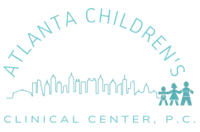Developmental Milestones - From Age 2 to Age 4
What Should My Child Be Doing?
By Age Two....
Your child enters his/her second year and becomes a toddler, crawling vigorously, starting to walk, even talking a little. Exploring the boundaries established by your rules and her own physical and developmental limits will occupy much of his/her time for the next few years.
Here are some other milestones to look for:
Movement milestones
- Walks alone
- Pulls toys behind her while walking
- Carries large toy or several toys while walking
- Begins to run
- Stands on tiptoe
- Kicks a ball
- Climbs onto and down from furniture unassisted
- Walks up and down stairs holding on to support
Milestones in hand and finger skills
- Scribbles spontaneously
- Turns over container to pour out contents
- Builds tower of four blocks or more
- Might use one hand more frequently than the other
Language milestones
- Points to object or picture when it's named for him
- Recognizes names of familiar people, objects, and body parts
- Says several single words (by fifteen to eighteen months)
- Uses simple phrases (by eighteen to twenty-four months)
- Uses two- to four-word sentences
- Follows simple instructions
- Repeats words overheard in conversation
Cognitive milestones
- Finds objects even when hidden under two or three covers
- Begins to sort by shapes and colors
- Begins make-believe play
Social and emotional milestones
- Imitates behavior of others, especially adults and older children
- Increasingly aware of herself as separate from others
- Increasingly enthusiastic about company of other children
- Demonstrates increasing independence
- Begins to show defiant behavior
- Increasing episodes of separation anxiety toward midyear, then they fade
Developmental health watch
Because each child develops at his own particular pace, it's impossible to tell exactly when yours will perfect a given skill. The developmental milestones listed in this book will give you a general idea of the changes you can expect as your child gets older, but don't be alarmed if he takes a slightly different course. Alert your pediatrician, however, if he displays any of the following signs of possible developmental delay for this age range.
- Cannot walk by eighteen months
- Fails to develop a mature heel-toe walking pattern after several months of walking, or walks exclusively on his toes
- Does not speak at least fifteen words by eighteen months
- Does not use two-word sentences by age two
- Does not seem to know the function of common household objects (brush, telephone, bell, fork, spoon) by fifteen months
- Does not imitate actions or words by the end of this period
- Does not follow simple instructions by age two
- Cannot push a wheeled toy by age two
By Age Three and Four....
By your child's third birthday, the "terrible twos" are usually officially over and the "magic years" of three and four begin—a time when your child's world will be dominated by fantasy and vivid imagination. During the next two years, he/she will mature in many areas.
Here are some milestones to look for:
Movement milestones
- Hops and stands on one foot up to five seconds
- Goes upstairs and downstairs without support
- Kicks ball forward
- Throws ball overhand
- Catches bounced ball most of the time
- Moves forward and backward with agility
Milestones in hand and finger skills
- Copies square shapes
- Draws a person with two to four body parts
- Uses scissors
- Draws circles and squares
- Begins to copy some capital letters
Language milestones
- Understands the concepts of "same" and "different"
- Has mastered some basic rules of grammar
- Speaks in sentences of five to six words
- Speaks clearly enough for strangers to understand
- Tells stories
Cognitive milestones
- Correctly names some colors
- Understands the concept of counting and may know a few numbers
- Approaches problems from a single point of view
- Begins to have a clearer sense of time
- Follows three-part commands
- Recalls parts of a story
- Understands the concept of same/different
- Engages in fantasy play
Social and emotional milestones
- Interested in new experiences
- Cooperates with other children
- Plays "Mom" or "Dad"
- Increasingly inventive in fantasy play
- Dresses and undresses
- Negotiates solutions to conflicts
- More independent
- Imagines that many unfamiliar images may be "monsters"
- Views self as a whole person involving body, mind, and feelings
- Often cannot distinguish between fantasy and reality
Developmental health watch
Because each child develops in his own particular manner, it's impossible to tell exactly when or how he'll perfect a given skill. The developmental milestones listed in this book will give you a general idea of the changes you can expect as your child gets older, but don't be alarmed if his development takes a slightly different course. Alert your pediatrician, however, if your child displays any of the following signs of possible developmental delay for this age range.
- Cannot throw a ball overhand
- Cannot jump in place
- Cannot ride a tricycle
- Cannot grasp a crayon between thumb and fingers
- Has difficulty scribbling
- Cannot stack four blocks
- Still clings or cries whenever his parents leave him
- Shows no interest in interactive games
- Ignores other children
- Doesn't respond to people outside the family
- Doesn't engage in fantasy play
- Resists dressing, sleeping, using the toilet
- Lashes out without any self-control when angry or upset
- Cannot copy a circle
- Doesn't use sentences of more than three words
- Doesn't use "me" and "you" appropriately
